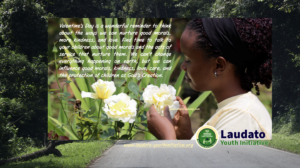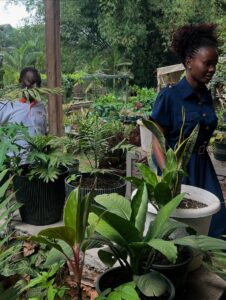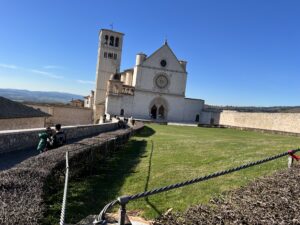The promise of sustainable green growth and smart agriculture in Uganda offers a beacon of hope for the country’s youth. As the population continues to grow and resources become scarcer, the need for innovative and eco-friendly solutions has never been greater.
Our beloved Country Uganda, with its vast agricultural potential, is primed to lead the way in sustainable development. Uganda is one of the fastest-growing economies in Africa. According to Karin Bridger/USAID, Agricultural growth is helping the country progress toward the first Millennium Development Goal with an emphasis on connecting youth with opportunities to engage in the agriculture sector. I believe by emulating examples of young people like Mr. Benon in Kasese who is embracing practices that preserve the environment and maximize productivity, the country can create a brighter future for its young people by enhancing biodiversity conservation, combating eco-biodiversity and reduce wildlife crime on community-based awareness strategies, and improving climate change adaptation in drought and flood-prone regions of the Country.


Smart agriculture, which utilizes technology and data to optimize farming practices, holds the key to increased efficiency and profitability. We need to empower our young people to embrace smart agriculture. Institutions of leaders should feed our youth with knowledge, skills, and leadership traits to be able to transition from the prejudices that agriculture is a low-level and low-paying form of employment as opposed to the get-rich-quick forms of jobs that our young people are now craving for in other Countries. From precision farming techniques to the use of smart agricultural innovations and research for crop monitoring, these innovations not only boost yields but also reduce the environmental impact of agriculture.
I should tell you sustainable green growth focuses on long-term solutions that protect natural resources and promote biodiversity. By embracing practices such as organic farming, agroforestry, and water conservation, Uganda can ensure a sustainable future for its youth and generations to come.

This week I was talking to one of the Laudato Youth about their school farm and how it’s equipping them with skills for transforming their homes in holidays. It was amazing to get a sense of excitement that this young kid is looking to go home for the holidays and try out something new.
That’s why I strongly believe empowering the youth to participate in these initiatives is crucial for the success of sustainable green growth and smart agriculture in Uganda. Through education, training, and access to resources, young people can become the driving force behind this transformative movement and reduce the unemployment problem in the Country.
To conclude I must say sustainable green growth and smart agriculture offer a promising future for Ugandan youth. By embracing the power of innovation and environmental stewardship, the country can pave the way for a more sustainable and prosperous tomorrow. Laudato Youth are all out for this.
Br. Adolf Mugume, Laudato Youth Mentor














